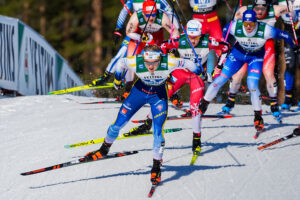Sport Psychologist Tells How to Maintain Motivation
Motivation drives athletes towards their goals and helps them develop while keeping what they do meaningful. How to maintain motivation throughout the season is a big question, according to sports psychologist Susanna Jääskeläinen.
At the moment, the most known theory of motivation is called self-determination theory, which includes having a good sense of achievement, the feeling of having a say in what one does, and having a quality support network, such as a cohesive training group.
“When these things are in place, the athlete retains the belief that what they are doing makes sense and helps them move forward. Training should be planned so that the bar is not constantly set too high, but that there are successes and this way the athlete retains a sense of competence.”
Injuries, which can lead to long breaks from training and competition, are a true test for the athlete, and this can affect motivation. According to Jääskeläinen, in such situations, having at least one person to whom an athlete can open up is of paramount importance.
“If there is no one to vent negative emotions, it is more difficult to channel psychological energy into constructive activities,” says Jääskeläinen.
When there is someone to talk to, the athlete’s mind frees, and they may become interested in their situation and start to think about what led to it and what needs to change in their actions.
“Studies have shown that those athletes who have had support during a serious injury have later found that the injury was a developmental step because they started to do things better. Those who lacked such support said that it was a dark period and did not benefit them.”
No Need to Feel Nervous about Being Nervous
The fact that skiing is important for an athlete can also be reflected in nervousness in competitions. Jääskeläinen emphasizes that there is rarely any harm in being nervous, even if it is unpleasant.
It can be made worse by thinking that you shouldn’t be nervous. Jääskeläinen says that it is helpful not to get tense about being nervous.
“Cross-country skiing is a sport that an energetic stress reaction suits well. There would be nothing interesting about the sport if there were no uncertainty, and no one would want to ski in races where the outcome was known in advance.”
However, you can try to reduce your nervousness, and the starting point for this is to think about why the race and the possibility of failure cause one to feel nervous.
“You can think about why you attach such importance to the competition that you start to think that it is dangerous to fail it. Is it the media that frightens you or perhaps your competitors? Are there people on the coaching team that you don’t want to disappoint, or are you afraid that you won’t be able to handle such a big disappointment on a personal level?”
In Jääskeläinen’s opinion, before a race, it would be a good idea to try to build up the conditions around the athlete in a way that it makes going to the race venue more comfortable. With some athletes, for example, she has worked out a precise program for the day of the race, with the race itself being just one point.
“It helps when you know everything beforehand and doesn’t have to rush around trying to figure out where everything is happening. The purpose of a precise plan is to unload the nervous energy for constructive work and preparation so that it is clear at all times what is being done and where one’s thoughts are focused at any given moment.”










